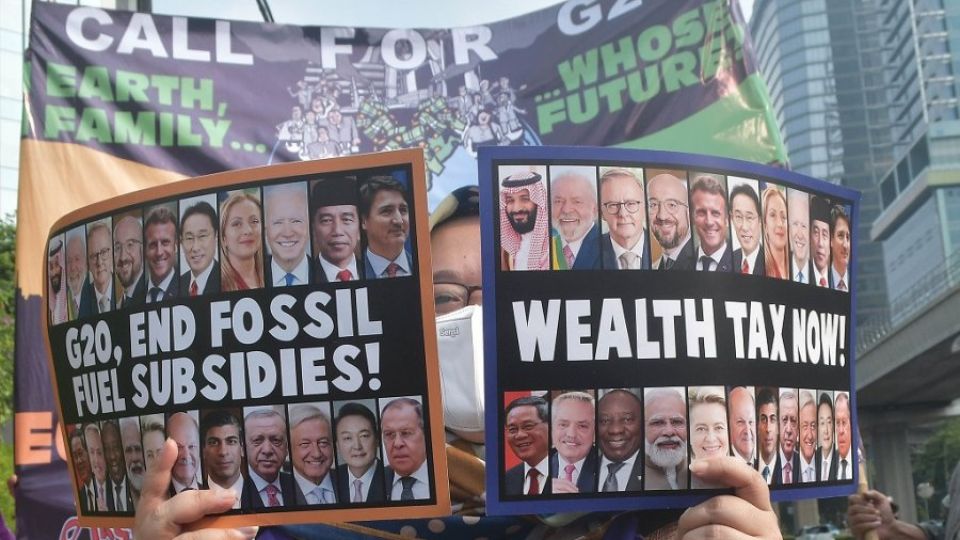September 22, 2023
JAKARTA – Political parties have yet to prioritize issues of climate change and energy transition on their platforms, while politicians only talk about them in relation to economic policy, a recent study has revealed.
This lack of focus on such issues might be disadvantageous for parties that want to win the votes of young people, who are most concerned about the fate of the Earth, during the upcoming elections.
The study, conducted by clean energy advocacy group Indonesia Cerah Foundation, focused on nine political parties that won seats in the House of Representatives during the 2019 election, by looking at news reports published between January 2019 and March this year and each party’s mission statement or manifesto.
The researchers searched for key words such as “climate change”, “coal phase-out” and “renewable energy” in the news reports to see whether these parties had publicly discussed climate change and energy-transition issues.
After crawling through the documents, Indonesia Cerah found that most political parties had not included climate change or the energy transition on their platforms.
“There are very few party policies on such issues. They only make any comments when reacting to issues surfacing on mainstream media,” the foundation research association Wicaksono Gitawan said in an online discussion recently.
Exacerbating the situation, the parties were also unfamiliar with concepts related to the climate crisis or energy transition, such as green jobs, Wicaksono added, while also not recognizing the impact of climate change on minority groups, such as disabled people, and women.
The government has started to push the agenda of climate and energy transition, by working on international financing under the Just Energy Transition Partnership (JETP) scheme, which will be used to retire several coal-fired power plants early.
Despite the government’s moves to push the climate agenda, none of the parties followed up by pressing for policies or legislation that could support the energy transition in the country, said Indonesia Cerah climate and youth associate Rafaela Xaviera.
Furthermore, no parties have taken into account scientific findings regarding the climate crisis, including the reports produced by the United Nations’ Intergovernmental Panel on Climate Change (IPCC). Politicians also merely focus on international economic cooperation when talking about the climate rather than local initiatives to mitigate or adapt to the impacts.
“We also found that the parties pushed for unproven technology dubbed solutions to the climate crisis, such as carbon capture and storage, rather than pushing for nature-based solutions such as natural conservation,” Rafaela said.
Not necessarily written
The lack of focus on climate issues might hurt these political parties and their politicians when seeking votes from millennials and Gen Zers, which make up a third of registered voters for the 2024 elections. These groups are prioritizing climate action and sustainability issues in the elections, expecting candidates to address more of these issues.
However, representatives of political parties have argued that their respective camps have paid attention to and taken action on climate and, more broadly, environmental issues.
Prosperous Justice Party (PKS) deputy secretary-general Ahmad Fathul Bari said the party had regularly included environmental issues on a written policy platform open to the public since 2007. The Islam-based party has also promoted its stance on environment-related policies such as local waste management or the Job Creation Law on its website and on social media.
Among the laws amended by the Job Creation Law were laws regulating protection against the environmental impacts of business activities. The new law revoked a requirement for environmental experts and affected communities to be involved in environmental-impact analyses.
House of Representatives lawmaker Himmatul Aliyah of the Gerindra Party said it was not necessary for the party to mention climate issues on its platform to show that it cared about environmental issues.
Himmatul, who is a member of House Commission X overseeing education, sport and tourism, claimed that she personally had voiced her concerns that authorities were treating the environmental impact analysis (Amdal) as a formality for some businesses, rather than a serious measure to mitigate their environmental impact.
“Much environmental destruction occurs because we ignore the Amdal,” she said.
Lusyani Suwandi, chair of the NasDem party executive board for environmental issues, said the party had regularly taken “real” environmental actions, such as planting mangroves or cleaning up trash from coral reefs and beaches.
“Those things might seem insignificant, but it would be impactful if all components of society did it,” she said.
Some NasDem members, she added, were also sitting in strategic positions that related to environmental issues within the government, such as Environment and Forestry Minister Siti Nurbaya Bakar.


